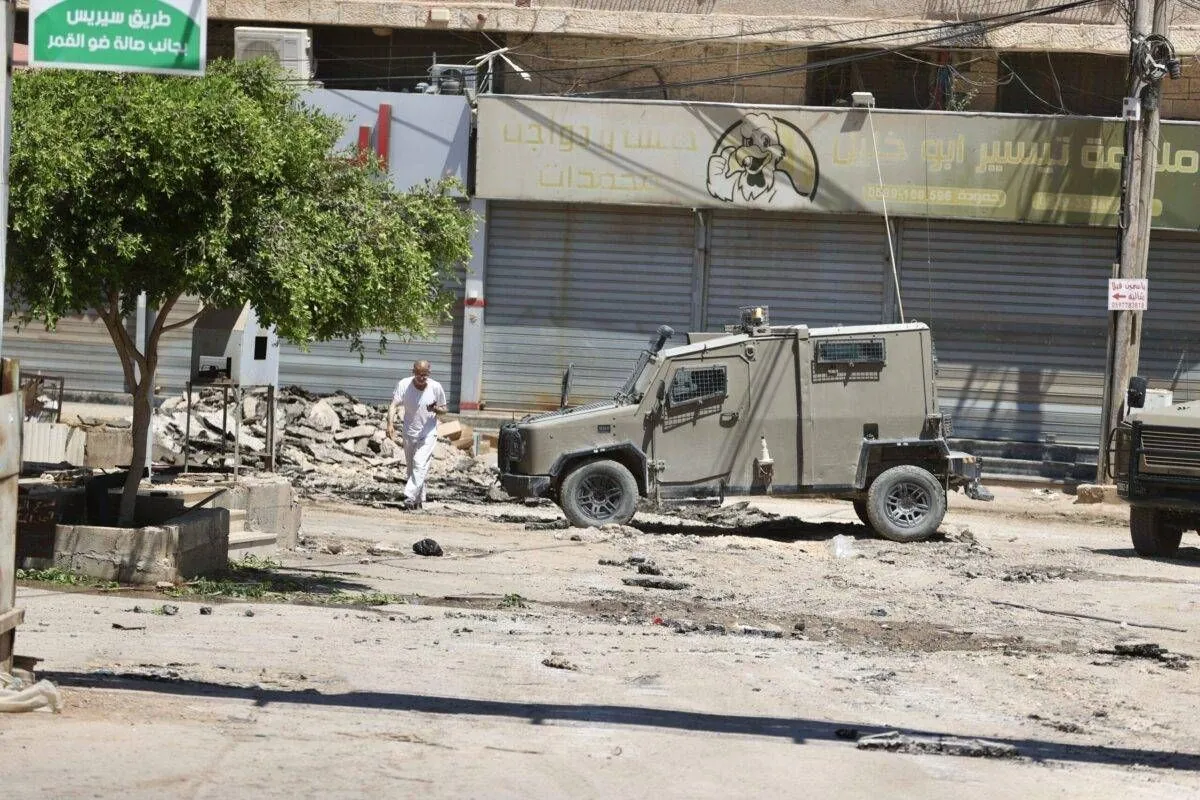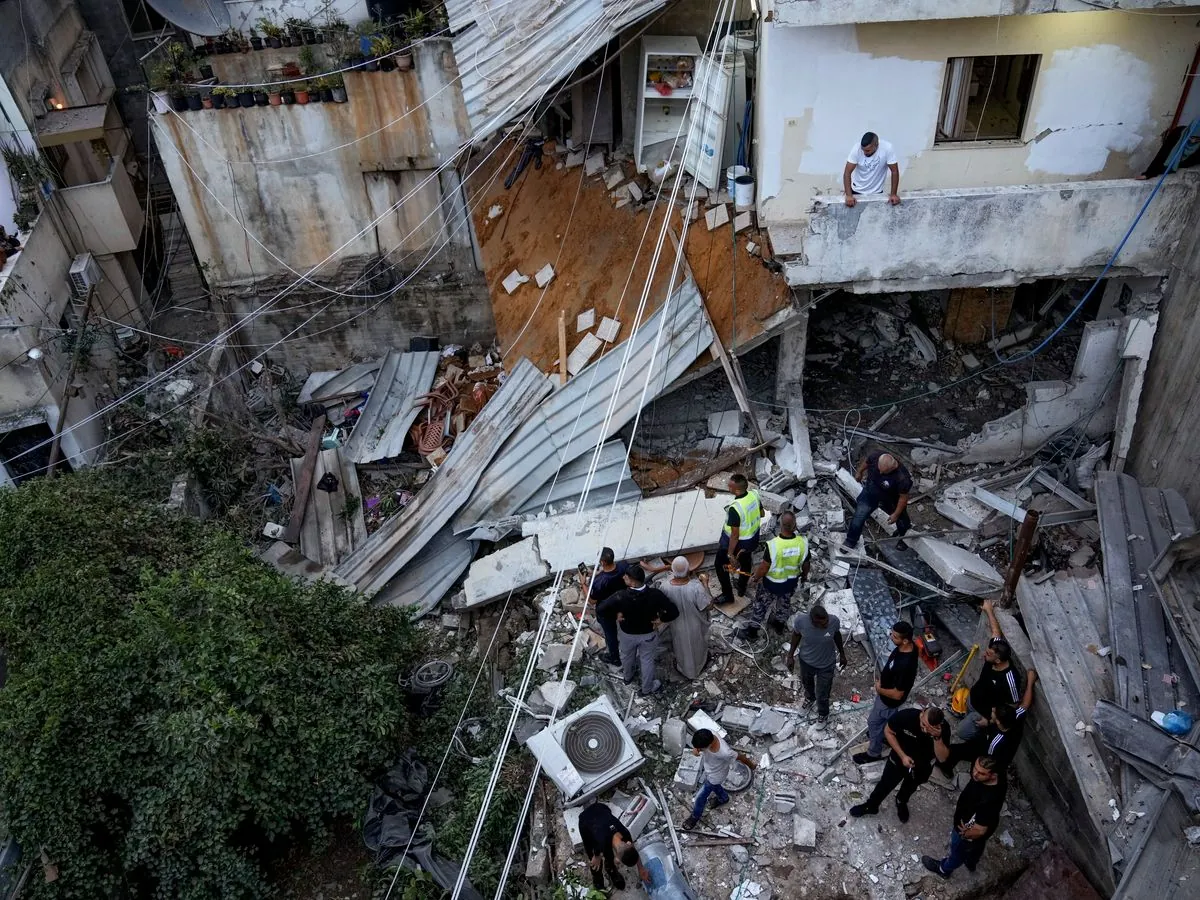Israeli Forces Kill Top Militant in Major West Bank Operation
Israeli military conducts extensive raids in West Bank, killing a prominent militant commander. Operation sparks clashes, raises humanitarian concerns, and impacts aid delivery in the region.

In a significant operation spanning multiple areas of the northern West Bank, Israeli forces have eliminated a high-ranking Palestinian militant commander. The operation, which entered its second day on August 29, 2024, has resulted in numerous casualties and raised concerns about humanitarian access in the region.
Mohamed Jaber, also known as Abu Shuja'a, was reported killed by the Israel Defense Forces (IDF) during an exchange of fire inside a mosque in Tulkarm. The 26-year-old commander of the Palestinian Islamic Jihad-led Tulkarm battalion was a primary target for Israeli forces due to his involvement in planning attacks against Israelis.
The operation has led to clashes in several areas, including Jenin, Tulkarm, and the Fara'a refugee camp near Tubas. Palestinian health authorities reported at least 12 fatalities, not including the five militants killed in Tulkarm. The extensive military presence has resulted in restricted movement for emergency services, hampering their ability to reach those in need.

The intensified focus on the West Bank comes as Israel reports an increase in attacks originating from the region. This operation appears to be one of the largest in the occupied territory in recent years, involving hundreds of Israeli troops conducting mass arrests and engaging in gun battles.
The West Bank, under Israeli occupation since 1967, has been a focal point of the Israeli-Palestinian conflict. The current operation has reignited tensions in an already volatile region, with Palestinian groups warning of potential escalation.
"We confirm the assassination of our leader. Our fighters detonated an explosive device and shot at an Israeli infantry unit behind a mosque, causing direct hits in response to the killing."
The ongoing situation in the West Bank is set against the backdrop of the continuing conflict in Gaza. According to the Gaza Health Ministry, the death toll in Gaza has reached 40,602 since the war began, with 93,855 injured. The majority of casualties are reported to be women and children.
Humanitarian efforts in the region have faced significant challenges. The World Food Program (WFP) announced a temporary suspension of aid deliveries in Gaza following an incident where one of its teams was fired upon near an Israeli military checkpoint. This decision highlights the increasing risks faced by aid workers in the conflict zone.
The complex situation in the West Bank is further complicated by its unique geopolitical status. The Palestinian Authority, established in 1994, has limited self-governance in parts of the territory. However, Israeli control over resources, movement, and security continues to be a source of tension.
As the operation continues, concerns grow about its impact on civilian life and essential services. The international community watches closely, as the events in the West Bank have the potential to influence the broader Israeli-Palestinian conflict and regional stability.


































